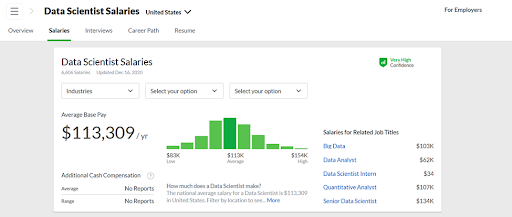Have you always wanted to work remotely? Sharpen up your remote work interview skills because there are more remote opportunities today than ever before.
Several years ago, it was the employees who sought out companies with flexible work arrangements, including working from home. Many employers were reluctant.
Today, out of necessity, employers now realize the benefits of remote working.
Accelerated Digital Transformation
As weeks turned into months of shutdowns, remote work switched from a perk and retention tool for employees to an essential business need.
Stay-at-home government mandates and concern for the safety of employees drove business leaders to quickly transform digital marketing operations and functions to work efficiently in a remote environment.
Those companies who were already transitioning their core applications, communications structure, and office suites to accommodate a remote workforce had an easier time adapting to the crisis than those that were not.
Many employees are now working from home. And many are getting hired via virtual interviews as well.
The Remote Interviewing Process
The process of interviewing, hiring, and training has been drastically changed in the wake of Covid-19.
Some companies have been using remote workforces and recruiting without meeting face-to-face.
You can learn from people who have already secured jobs from such companies and increase your chances of having a successful remote interview.
Check out these tips to help you prepare for and perform your best in a remote job interview.
1. Write clearly and concisely.
Your first interactions with a company for a job opening will be in writing. Usually, you will reply to a job posting or send an email.
Be sure the tone of what you write is professional, clear, and concise. Pay attention to how the person you are communicating with writes and try to mirror their writing style in your replies.
For example, some businesspeople are very formal in how they communicate, while others are more casual.
2. Don’t forget about time zones.
In the world of the Internet, where we can talk to people across the world as easily as if we are in the same room, it is often easy to forget about time zone differences.
Be sure to look up the time zone for the company’s location and let the corresponding person know your time zone.
3. Have the platform where you will meet down cold.
Most companies will have a preferred method of communication, be it Skype, Google Hangouts, or Zoom.
However, others might ask you for your preference. By providing them with several options, you show a potential employer that you are proactive when accommodating communication.
Before the scheduled date of the interview:
- Download any necessary software or updates.
- Test your microphone and camera.
- Practice using the agreed-upon platform.
By getting comfortable with the communications method, you can more confidently communicate in the interview.
4. Prepare your space to look professional.
Your interview will most likely be via a video call. Decide the best camera placement position, turn off background noises, and tidy up the area around you.
Have a copy of your portfolio or work samples loaded on your computer, even though you already sent them to the potential employer.
Dress professionally for every interview, even when they are virtual. Use an external microphone and a headset to improve the quality of your call.
Don’t use your smartphone for an interview. Remember that you are applying for a remote job. You want to show your potential employer that you have a dedicated workstation.
The Need for Enhanced Security
Remote work poses several security challenges for companies. This is especially true when employees rely on other WiFi networks to access business data.
Employers should care about a candidate’s knowledge of security. Once someone they employ connects remotely to their network, the remote worker’s devices become an entry point for hackers.
Be prepared to answer questions about Virtual Private Network (VPN) usage during the interview process.
If it doesn’t come up, you might volunteer that you are familiar with using an encrypted VPN for security.
To stand out as a candidate, you should already know how to use a VPN. The employer may give you access to theirs, or you may need to acquire your own.
Selling Yourself and Your Skills
Carefully read the job description on the listing. How you sell yourself and your abilities will determine your chances of getting hired.
Share how your background and skill set meets the criteria for the job opening.
What if the job description mentions something you do not know how to do? There are many online training courses to address deficiencies in your skillset.
Why limit yourself to positions with high competition and low pay? It can benefit you to choose a more advanced field with lower competition and higher pay. There are some in-demand skills with a shortage of qualified applicants, such as data analysis.
Upgrading Your Skills for Higher Income
Review job postings and note where the demand is and what those positions pay. Then decide which of your skills could benefit from additional training and experience.
For example, there is a shortage of data scientists, so those positions typically offer much higher pay.

Potential employers will be more impressed by data science candidates with hands-on skills, so don’t limit yourself to coursework.
Instead, invest in a program where you develop and work on real-world data problems, building a standout portfolio of completed projects.
Having an outstanding portfolio illustrating your experience is a key ingredient to acing your remote work interview.
Ready to Ace Your Remote Work Opportunity?
To truly stand out requires having skills that most don’t have. The first step toward acing that interview might be to develop your abilities to make yourself an easy sell.













